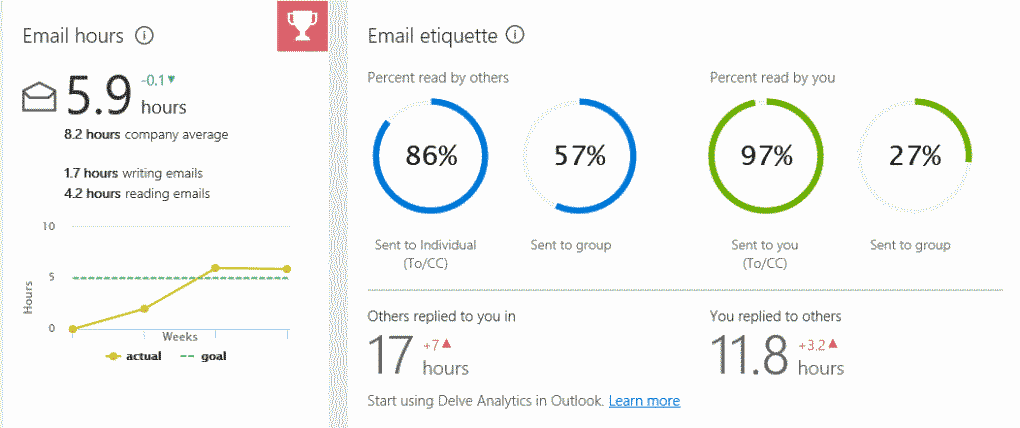Setting Expectations for Communications Responses
As I have started thinking about the best ways to communicate, I am realizing that most of my communications problems are self-inflicted. One of the biggest areas is how I respond. I very rarely respond to text messages, I may read Facebook feeds every couple of days, I am not consistent on mediums such as twitter, and I am too instantaneous on email.

Last week's email statistics via Delve Analytics
I am not saying that how I respond or interact above is bad, in fact, I would argue that for the most part they are absolutely the right approaches for me. However, there is potentially another person on the back side of the email, text, or post with whom communication happens. My goal now is to set the right expectations with my style of communication.
Setting yourself up for success, define your expectations first
There is something powerful about writing down what your expectations are for each form of communication that you use. What is interesting is that you realize all the different ways you communicate. Here is my list:
- Work Email
- Personal Email
- Phone
- Text Messaging
- Yammer
- Team rooms
- Skype for Business
- Blog posts and comments
I am sure my list is small compared to others, but as I defined expectations, I realized there are these core elements:
- Minimum time before the other party should expect a response
- Maximum time by when I should reply
- Declaring exceptions I am willing to make for these mediums
- Escalation path (if applicable)
How to share your expectations
This is an area where it can be a struggle. Here are a couple of ideas:
- Make sure that you follow you own guidance. For example, it may be enticing to reply quickly to an email that is below your minimum response time. I am guilty about this a lot. However, it also sets an implied expectation with the person you are corresponding with that they can expect “instantaneous” messaging in email.
- Since you have written your expectations down, it may be appropriate to share with those you communicate with a lot. Don’t just pick those that abuse the expectations.
- Add your expectations at the bottom of your response to set expectations explicitly. I do this rarely and at an individual level, but when I do, it is easier to “ignore” the offending party you are communicating with.
- Lead by example. It is unfair of you to have different expectations of others.
Check out my current response matrix for communications mediums
Initially, setting your boundaries will be uncomfortable. This will only be applicable until they realize you are serious and are consistent.